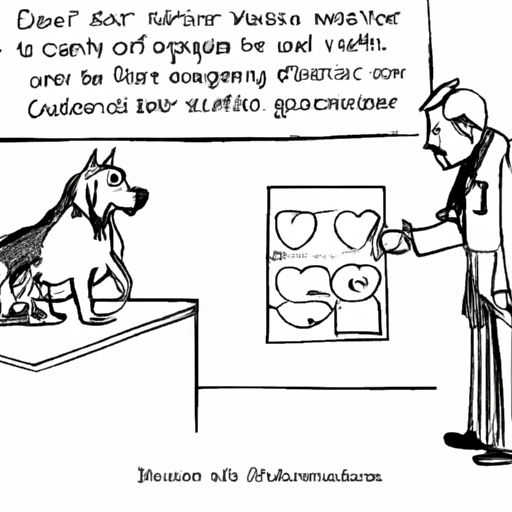The journey with our beloved canine companions is filled with numerous joys, undying loyalty, and unconditional love. However, as they age, various health issues may crop up, and one such concerning condition is congestive heart failure. This article aims to shed light on the last stages of congestive heart failure in dogs, the signs to look out for, and how you, as a caregiver, can provide the necessary support and care to your four-legged best friend during this challenging period.
- Table of Contents
- Understanding Congestive Heart Failure
- Last Stages of Congestive Heart Failure in Dogs
- Signs and Symptoms
- Diagnosis and Treatment
- Caregiver’s Role
-
Frequently Asked Questions
-
Key Takeaways
- Congestive heart failure in dogs is a progressive condition that can lead to severe symptoms in the last stages.
- The last stages are characterized by severe symptoms such as weakness, difficulty breathing, and loss of appetite.
- Timely diagnosis and appropriate treatment can help manage the disease and improve your dog’s quality of life.
- As a caregiver, your support and care are crucial during these challenging times.
Understanding Congestive Heart Failure
Congestive heart failure (CHF) in dogs is a progressive condition that occurs when a dog’s heart cannot pump enough blood to the rest of its body. This lack of adequate blood flow can lead to various symptoms and complications, severely impacting your dog’s health and quality of life. For a deeper understanding of this condition, you may find this guide helpful.
Last Stages of Congestive Heart Failure in Dogs
As the disease progresses to the last stages, the symptoms become more severe, and you may notice significant changes in your dog’s behavior and physical condition. The last stages are typically characterized by:
- Severe weakness and lethargy: Your dog may show less interest in activities it once enjoyed and may have difficulty moving around.
- Difficulty breathing or increased respiratory rate: Breathing problems are common in the last stages due to fluid accumulation in the lungs.
- Loss of appetite and weight loss: Your dog may lose interest in food, leading to significant weight loss.
You can refer to a comprehensive list of symptoms here.
| Signs | Detailed Symptoms |
|---|---|
| Severe weakness and lethargy | Less or no interest in physical activities, difficulty moving around |
| Difficulty breathing | Rapid breathing, coughing, panting |
| Loss of appetite and weight loss | Less or no interest in food, noticeable weight loss |
Diagnosis and Treatment
If you observe any of these signs, it’s essential to take your dog to a vet immediately. The vet will typically conduct a series of tests, including a physical examination, X-rays, and an echocardiogram, to diagnose CHF. Based on the diagnosis, the vet will prescribe a treatment plan to manage the symptoms and improve your dog’s quality of life.
While there is no cure for CHF, medications can help manage the condition. These may include diuretics to reduce fluid accumulation, ACE inhibitors to improve heart function, and other drugs to manage symptoms. For more on dog heart diseases, you can explore onetopdog.com.
Caregiver’s Role
As a caregiver, your role is crucial during this challenging period. You need to ensure your dog is comfortable, monitor its symptoms regularly, and promptly administer the prescribed medications. Regular vet visits are essential to assess your dog’s condition and make necessary adjustments to the treatment plan.
You might also need to make some changes to your dog’s diet and lifestyle, such as reducing salt intake and ensuring your dog gets appropriate, low-intensity exercise. For more tips on caring for a dog with CHF, you can refer to this guide.
Frequently Asked Questions
1. What are the signs of the end stages of congestive heart failure in dogs?
The end stages of CHF in dogs are characterized by severe symptoms like extreme weakness, difficulty breathing, and drastic weight loss due to loss of appetite.
2. How can I make my dog comfortable during the last stages of CHF?
You can ensure your dog’s comfort by providing a quiet and comfortable place to rest, administering prescribed medications, and providing a diet suitable for a dog with CHF.
3. Can a dog live comfortably with congestive heart failure?
While CHF is a severe condition, with the right treatment and care, a dog can live a comfortable life for some time. However, it’s essential to have frequent consultations with your vet to assess the situation and adjust the treatment plan accordingly.
In conclusion, while it’s heartbreaking to watch your furry friend go through the last stages of CHF, remember that your support and care can make a significant difference in their comfort and quality of life. Always consult with your vet and follow their advice to ensure that your dog gets the best possible care during this challenging time. For more information on canine health, visit onetopdog.com.



